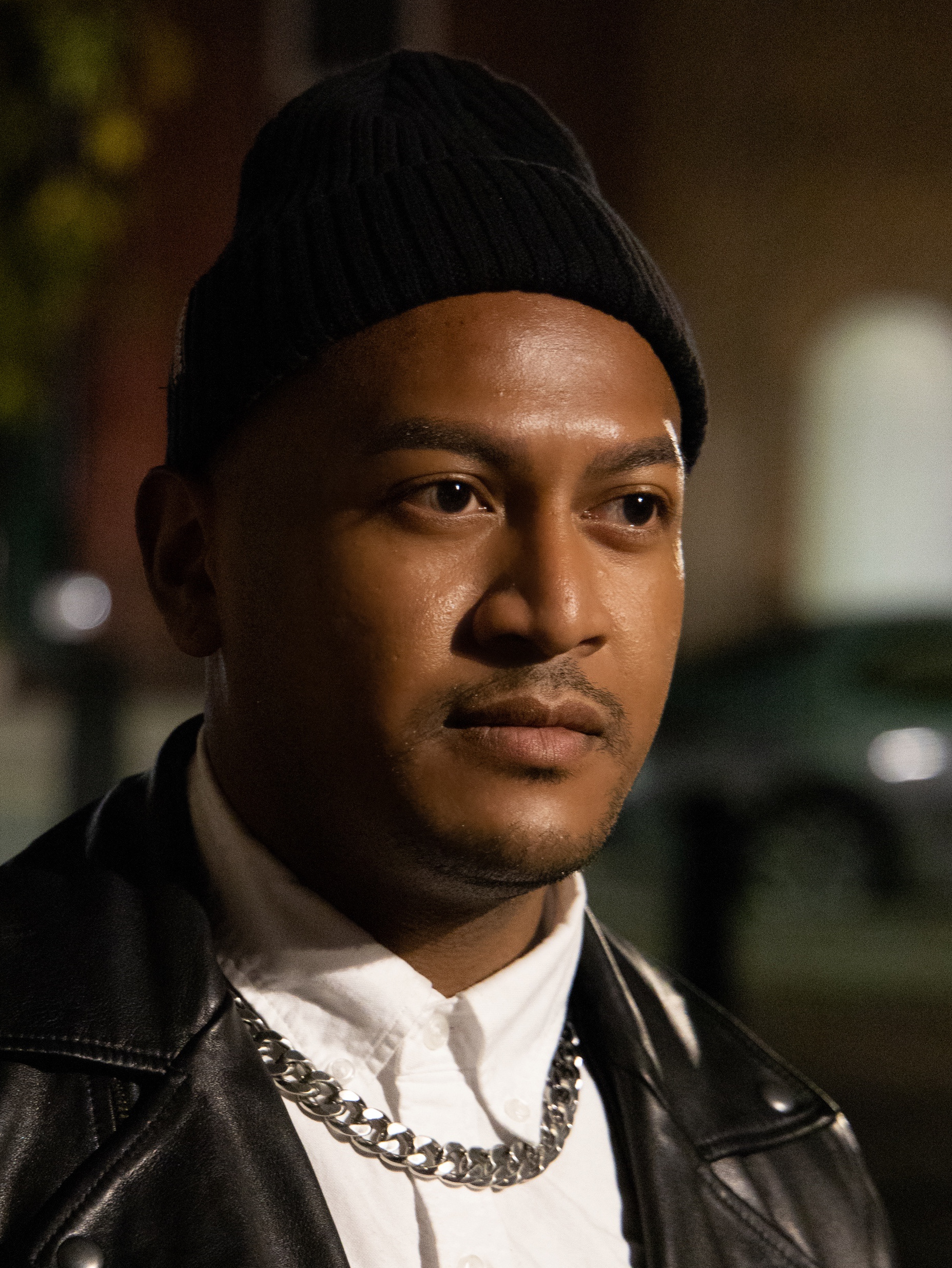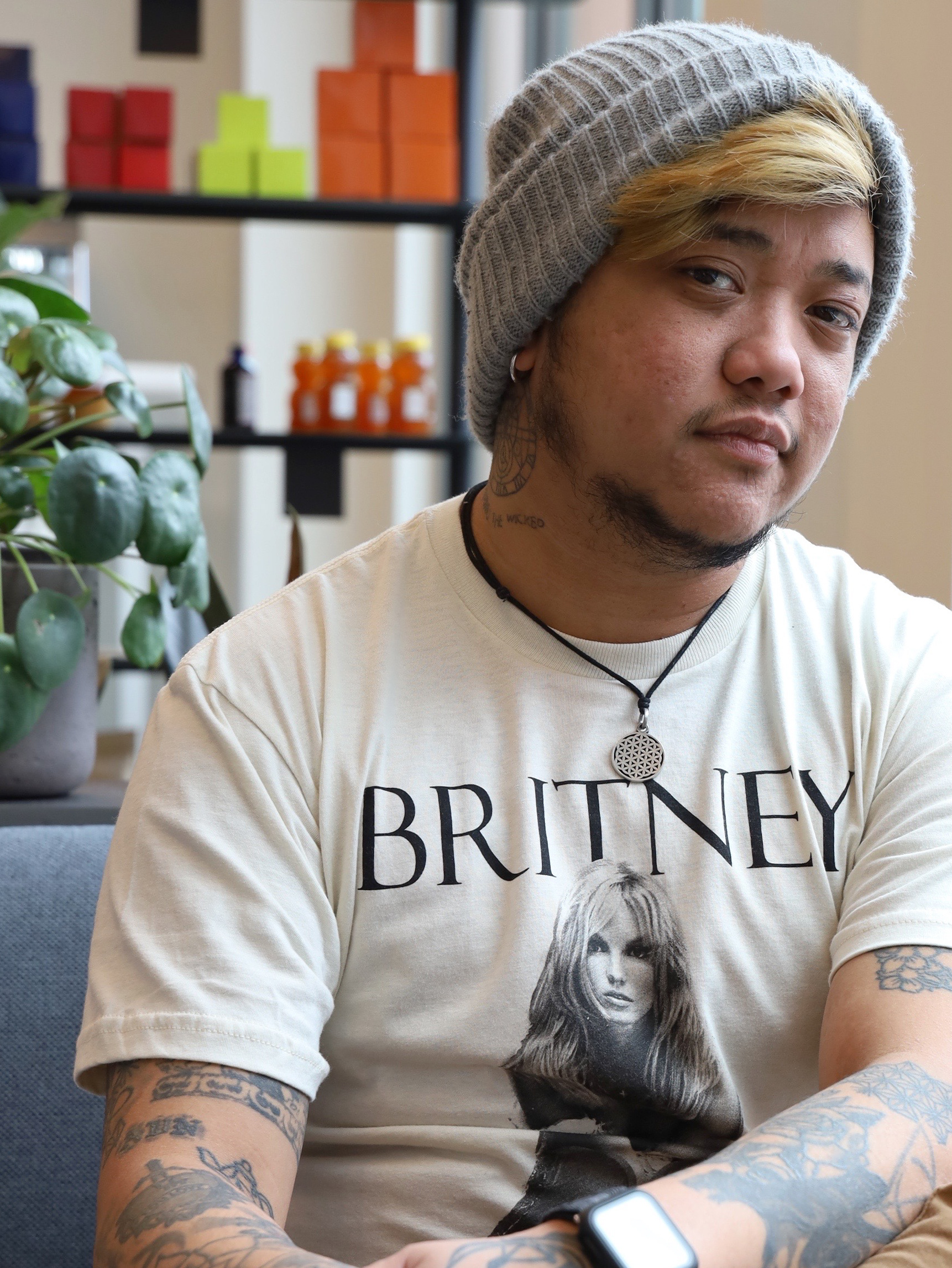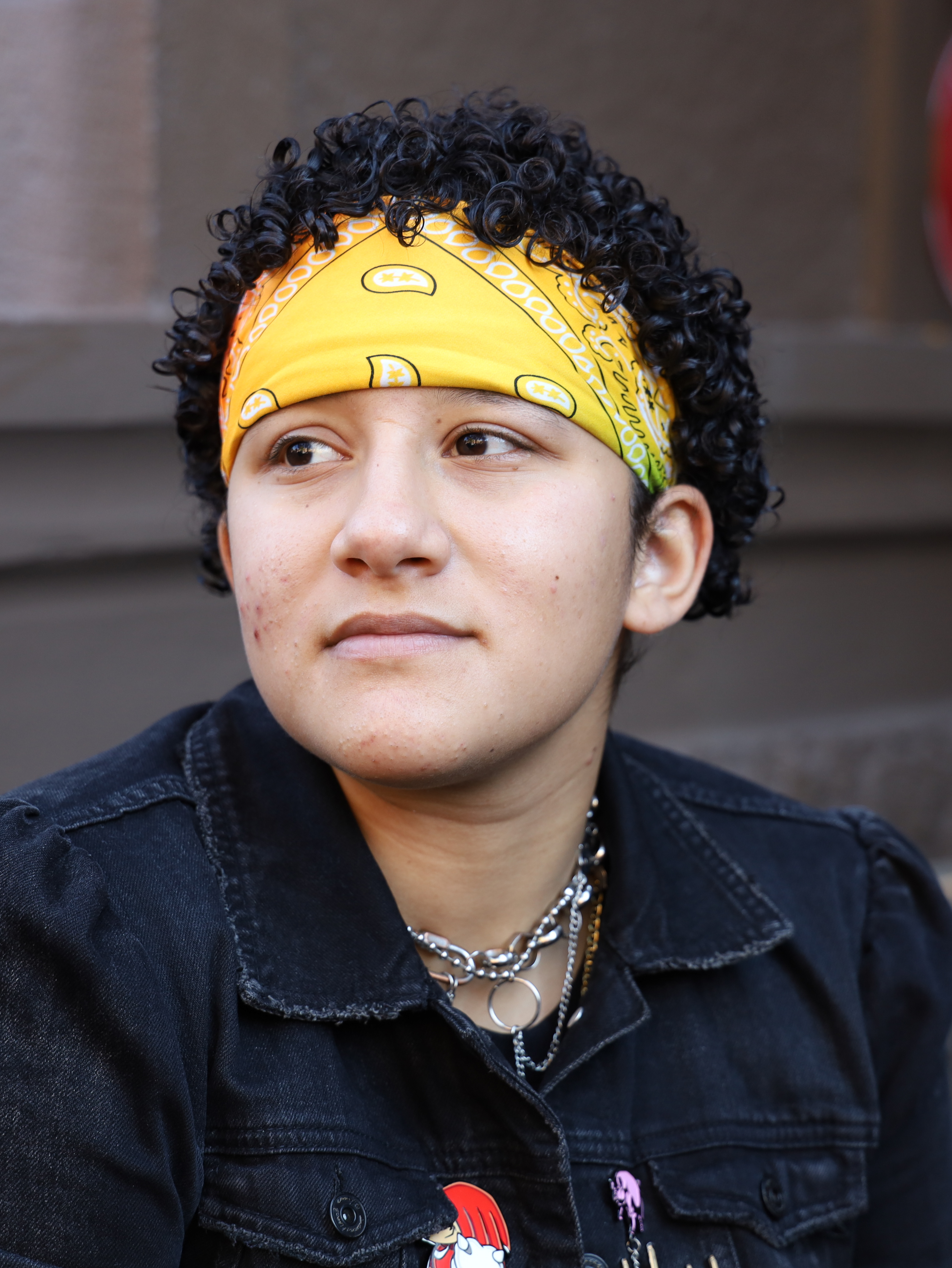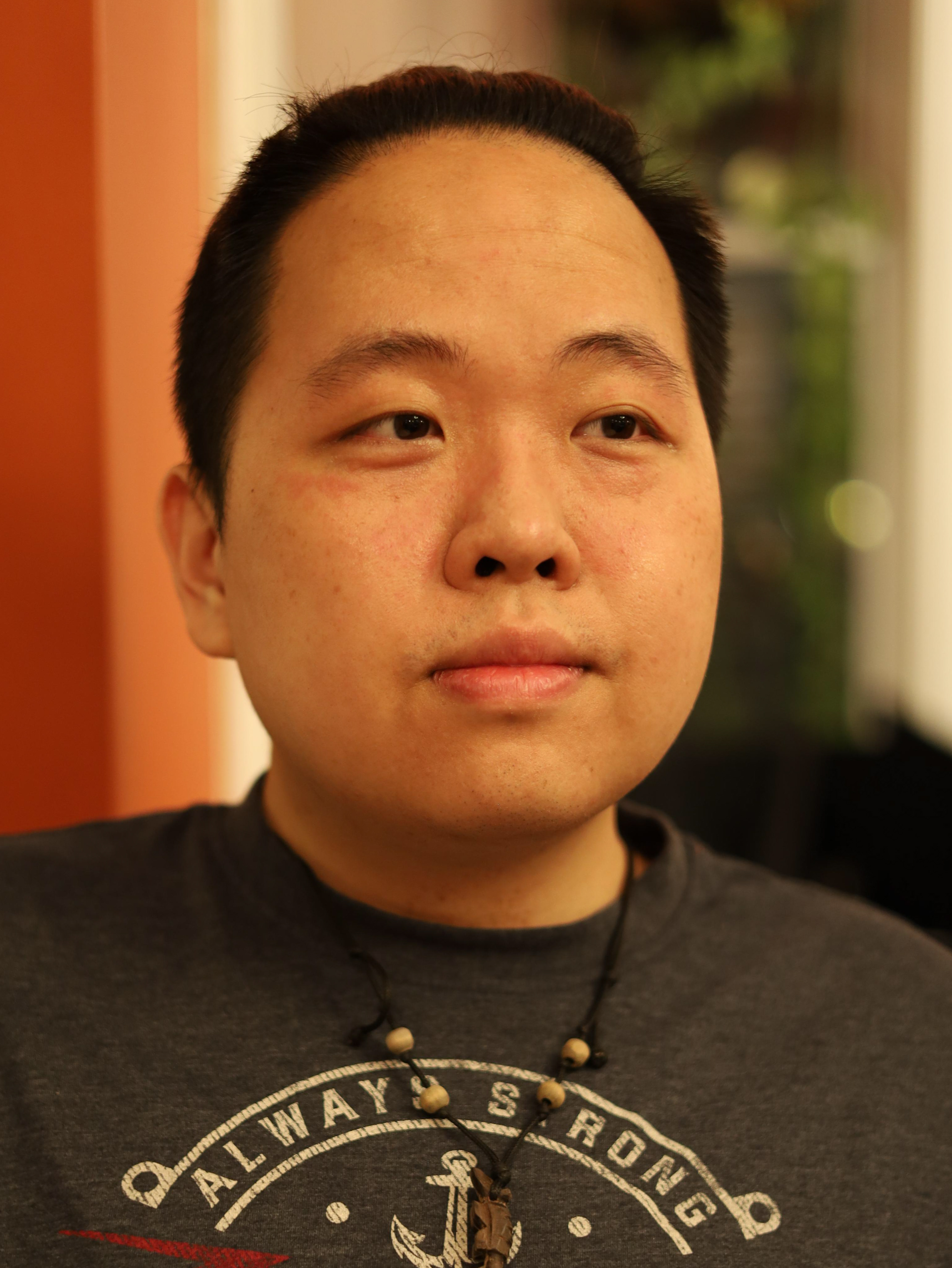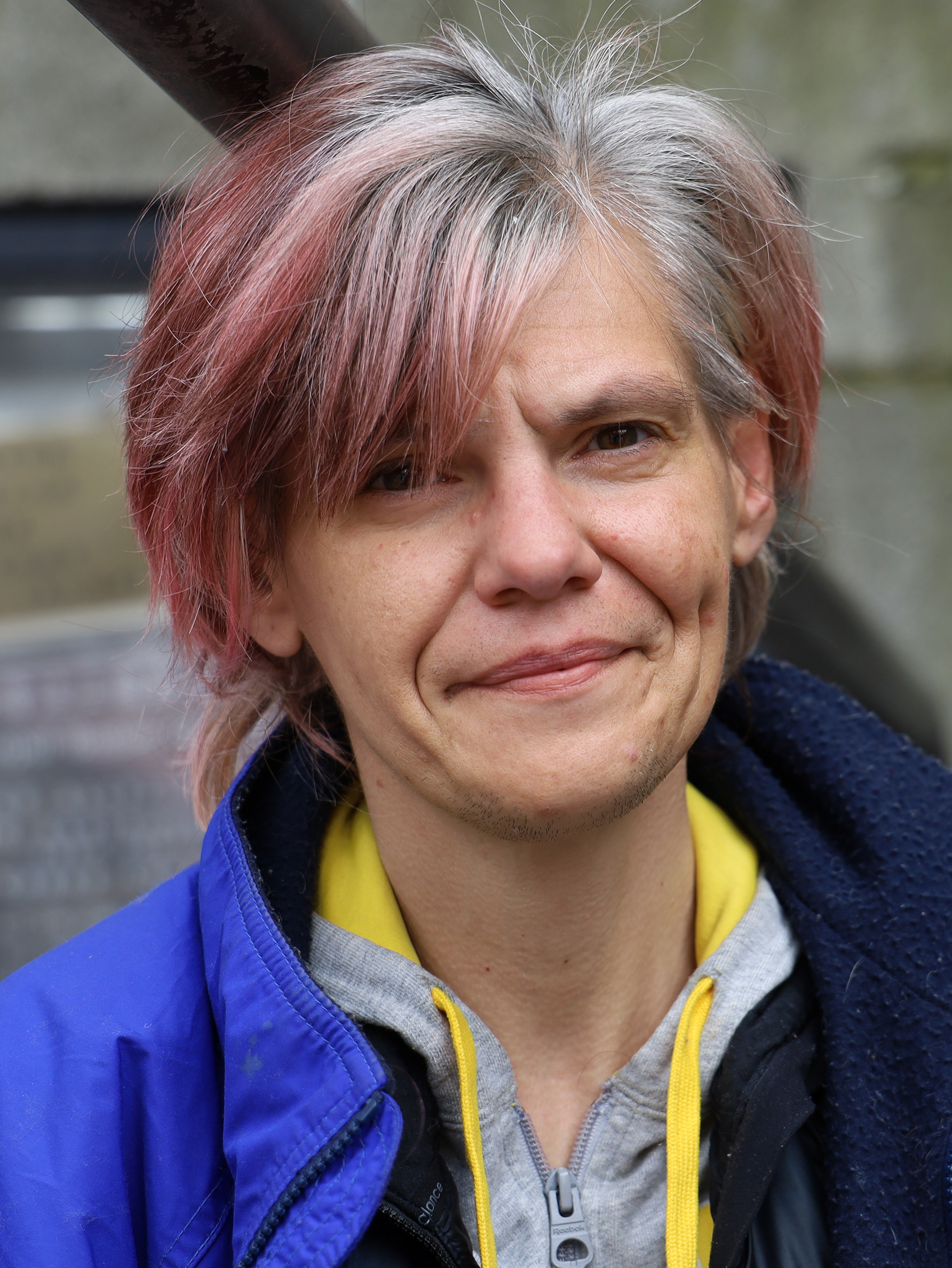“After I came out to my mom, we didn’t talk. We used to talk almost everyday; it’s a Latino family thing. As soon as I would get on the phone and we would talk for a minute or so, she would start crying. She believed that I was going to hell, so it was devastating and traumatic for her. She had expectations for my life, so my coming out was a big change for her. But then we started having conversations. My sister and other family members had to sit her down and tell her that she needed to stop crying and start listening. So my mom started doing that. She started to ask me questions like, ‘What does it mean to be gay?’ Because often queerness is very much hypersexualized. And you barely have conversations about day-to-day life. So when she asked me questions, she started to realize I am still the same person as I was before. Later on, she started to ask even more questions about labels and pronouns, and it all finally became a much more normal thing for her. And right now we have a great relationship once again. My mom and my family are excited about my partner and what our marriage might look like.”
— Noemi Uribe (she/her, they/them), 26, genderfluid, gay/lesbian/queer.

